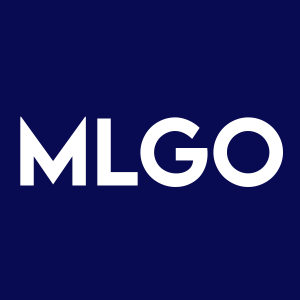MicroAlgo Inc. Develops Hybrid Classical-Quantum Algorithms to Optimize Multi-Query Problems
Rhea-AI Summary
MicroAlgo Inc. (NASDAQ: MLGO) has announced the development of an innovative hybrid classical-quantum algorithm designed to optimize Multi-Query Optimization (MQO) problems. The algorithm combines classical computing stability with quantum computing efficiency, achieving nearly 99% qubit efficiency.
The solution addresses current quantum computing limitations through key features including efficient qubit usage, reduced error rates through classical error correction mechanisms, scalability for various problem sizes, and compatibility with existing gate-based quantum computers. The algorithm transforms MQO problems into quantum-compatible forms, utilizing quantum circuits for operations while employing classical computers for error correction and result processing.
Experimental evaluations demonstrate the algorithm's capability to handle smaller-scale problems effectively, showing significant efficiency improvements compared to quantum annealing-based computers. The development represents a practical advancement in quantum computing applications, particularly for data-intensive NP-hard problems in database optimization, machine learning, and network routing.
Positive
- Achieved 99% qubit efficiency in quantum computing operations
- Successfully developed hybrid algorithm compatible with existing quantum hardware
- Demonstrated significant efficiency improvements over quantum annealing-based systems
- Successfully reduced quantum computation error rates through classical error correction
Negative
- Current implementation to smaller-scale problems due to qubit constraints
- Technology still faces practical limitations in handling large-scale problems
News Market Reaction 1 Alert
On the day this news was published, MLGO declined 5.32%, reflecting a notable negative market reaction.
Data tracked by StockTitan Argus on the day of publication.
Quantum computing is a technology that uses the principles of quantum mechanics to process information. Compared to traditional classical computers, quantum computers exhibit the potential to outperform classical computers in handling certain types of problems, such as search, optimization, and simulating quantum systems. However, the realization of quantum computers faces technical challenges, particularly in constructing quantum computers with a sufficient number of qubits and low error rates.
The Multi-Query Optimization (MQO) problem is a class of data-intensive problems that are NP-hard, and it has applications in many fields such as database query optimization, machine learning algorithms, and network routing. The core of the MQO problem lies in how to effectively handle multiple query requests to minimize the overall computational cost or time.
Although quantum computers theoretically have tremendous potential, current quantum computers are far from being fully practical. The limited number of qubits and high error rates restrict their ability to solve large-scale problems. To address these issues, MicroAlgo has proposed a hybrid algorithm that combines the stability of classical computers with the efficiency of quantum computers.
MicroAlgo's hybrid algorithm design is based on the following key points:
Efficient Use of Qubits: Through carefully designed quantum circuits, the algorithm ensures efficient utilization of qubits, achieving a qubit efficiency close to
Reduction of Error Rates: By integrating error correction mechanisms from classical algorithms, the error rate during the quantum computation process is significantly reduced.
Scalability of the Algorithm: The algorithm design by MicroAlgo takes scalability into account, enabling it to adapt to problems of varying sizes.
Compatibility with Existing Technologies: MicroAlgo's algorithm is compatible with existing gate-based quantum computers, meaning it can run on current hardware.
MicroAlgo's hybrid algorithm first transforms the MQO problem into a form that can be handled by quantum computing. Quantum circuits are designed to perform the necessary quantum operations, including quantum state preparation, application of quantum gates, and quantum measurement. Then, during the quantum computation process, classical computers are used to assist the quantum computation, such as in qubit error correction and post-processing of the results. Through experiments and simulations, the algorithm's performance is continuously optimized to ensure optimal performance with limited qubit resources.
MicroAlgo has conducted detailed experimental evaluations of the algorithm, including testing its performance on problems of various scales. The experimental results show that, despite the current limitations in qubit numbers, our algorithm is still able to handle smaller-scale problems and demonstrate a qubit efficiency close to
In exploring the vast field of quantum computing, MicroAlgo's hybrid algorithm represents an innovative solution that combines the stability of classical computing with the efficiency of quantum computing to address the challenges of Multi-Query Optimization (MQO). Through carefully designed quantum circuits and algorithmic optimizations, the algorithm not only improves qubit utilization efficiency but also significantly reduces error rates, enabling it to run on existing quantum hardware while maintaining scalability for large-scale problems. This achievement marks a significant step forward in the practical realization of quantum computing.
With the ongoing advancements in quantum technology, there is every reason to believe that MicroAlgo's hybrid algorithm will play an even more important role in the future. As quantum computer hardware improves and the number of qubits increases, the algorithm will be able to tackle larger-scale problems, unlocking greater potential in fields such as chemistry, physics, and machine learning.
MicroAlgo's hybrid algorithm is not only a major breakthrough in existing technology but also a powerful outlook on the future applications of quantum computing. We firmly believe that, through continuous research and innovation, quantum computing will gradually transition from theory to practice, becoming a powerful driver of technological progress and societal development. We look forward to a future where quantum computing will bring even more surprises and possibilities, opening a new era of computing.
About MicroAlgo Inc.
MicroAlgo Inc. (the "MicroAlgo"), a Cayman Islands exempted company, is dedicated to the development and application of bespoke central processing algorithms. MicroAlgo provides comprehensive solutions to customers by integrating central processing algorithms with software or hardware, or both, thereby helping them to increase the number of customers, improve end-user satisfaction, achieve direct cost savings, reduce power consumption, and achieve technical goals. The range of MicroAlgo's services includes algorithm optimization, accelerating computing power without the need for hardware upgrades, lightweight data processing, and data intelligence services. MicroAlgo's ability to efficiently deliver software and hardware optimization to customers through bespoke central processing algorithms serves as a driving force for MicroAlgo's long-term development.
Forward-Looking Statements
This press release contains statements that may constitute "forward-looking statements." Forward-looking statements are subject to numerous conditions, many of which are beyond the control of MicroAlgo, including those set forth in the Risk Factors section of MicroAlgo's periodic reports on Forms 10-K and 8-K filed with the SEC. Copies are available on the SEC's website, www.sec.gov. Words such as "expect," "estimate," "project," "budget," "forecast," "anticipate," "intend," "plan," "may," "will," "could," "should," "believes," "predicts," "potential," "continue," and similar expressions are intended to identify such forward-looking statements. These forward-looking statements include, without limitation, MicroAlgo's expectations with respect to future performance and anticipated financial impacts of the business transaction.
MicroAlgo undertakes no obligation to update these statements for revisions or changes after the date of this release, except as may be required by law.
![]() View original content:https://www.prnewswire.com/news-releases/microalgo-inc-develops-hybrid-classical-quantum-algorithms-to-optimize-multi-query-problems-302341248.html
View original content:https://www.prnewswire.com/news-releases/microalgo-inc-develops-hybrid-classical-quantum-algorithms-to-optimize-multi-query-problems-302341248.html
SOURCE Microalgo.INC







